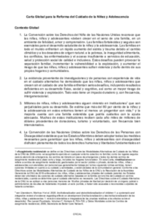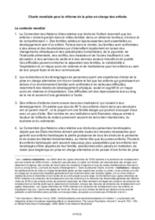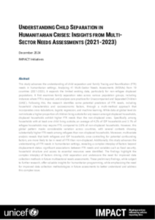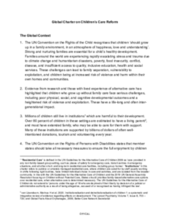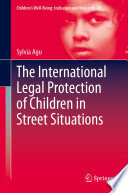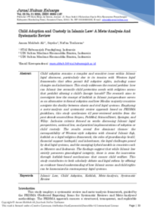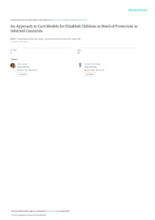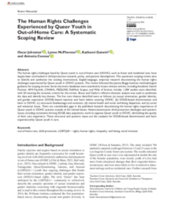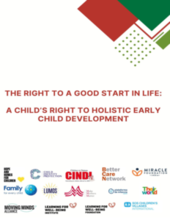Displaying 111 - 120 of 4431
La Carta Global para la Reforma del Cuidado de la Niñez y Adolescencia es un llamado a los líderes mundiales para que actúen juntos para: respetar la Convención de las Naciones Unidas sobre los Derechos del Niño y sobre los Derechos de las Personas con Discapacidad; invertir en las familias, en las niñas, niños o adolescentes egresados del sistema de protección y servicios inclusivos; poner fin a la violencia contra la niñez y adolescencia y a las prácticas perjudiciales como el turismo en las instituciones
La Charte mondiale pour la réforme de la prise en charge des enfants appelle les dirigeants mondiaux à agir ensemble pour: respecter la Convention des Nations Unies relative aux droits de l’enfant et la Convention des Nations Unies relative aux droits des personnes handicapées;
investir dans les familles, les enfants, les jeunes sortant de l’aide sociale et dans des services inclusifs; mettre fin à la violence à l’égard des enfants et aux pratiques néfastes telles que le tourisme dans les orphelinats
This study advances the understanding of child separation and Family Tracing and Reunification (FTR) needs in humanitarian settings.
In January 2025, the U.K. Foreign, Commonwealth and Development Office launched an initiative to transform the lives of children globally so that all children are cared for in families and free of violence, exploitation and other harmful practices.
Through this new campaign governments, civil society, faith groups, and individuals with lived experience of care systems are calling on world leaders to join forces in a global movement that harnesses decades of international progress to ensure all children are growing up in a safe, nurturing and loving family environment. This overview calls on government leaders to join this movement.
In January 2025, U.K. Foreign, Commonwealth and Development Office launched an initiative to transform the lives of all children globally, so that they are cared for in families and free of violence, exploitation and other harmful practices.
The Global Charter on Children’s Care Reform is a call for world leaders to act together to: uphold the UN Convention on the Rights of the Child and the UN Convention on the Rights of Persons with Disabilities; invest in families, children, care leavers, and inclusive services; and end violence against children and harmful practices like orphanage tourism.
This book offers a comprehensive and rights-based legal framework addressing the unique challenges faced by children living on the streets. The book delivers a detailed analysis of international legal instruments—both binding treaties and relevant “soft law”—to clarify how they apply to such children.
Child adoption remains a complex and sensitive issue within Islamic legal discourse, particularly due to its tension with Western legal frameworks that often permit full adoptive rights, including name changes and inheritance. This study addresses the central problem: how can Islamic law reconcile child protection needs with religious norms that prohibit altering a child’s lineage? The research aims to investigate how the concept of kafalah in Islamic jurisprudence serves as an alternative to formal adoption and how Muslim-majority countries navigate the duality between sharia and civil legal systems.
Child protection systems have traditionally emphasized remedial services over prevention, often relying on uniform care models that fail to account for children’s diverse needs. This study examines the child protection systems of countries representing various welfare models and comparatively evaluates the practices for disabled children in need of protection in these systems.
The human rights challenges faced by Queer youth in out-of-home care (OOHC), such as foster and residential care, have largely been overlooked in child protection research, policy, and practice development. This systematic scoping review aims to identify and synthesize the existing international, English-language, empirical research documenting the human rights challenges experienced by Queer youth in OOHC systems.
This position paper underscores that Early Childhood Development (ECD) is a fundamental human right, essential for ensuring that all children have the opportunity to survive and to thrive – regardless of socioeconomic status, gender, or crisis situation.

